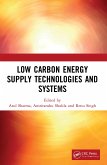Solar energy is a substantial global industry, one that has generated trade disputes among superpowers, threatened the solvency of large energy companies, and prompted serious reconsideration of electric utility regulation rooted in the 1930s. One of the biggest payoffs from solar's success is not the clean inexpensive electricity it can produce, but the lessons it provides for innovation in other technologies needed to address climate change.
Despite the large literature on solar, including analyses of increasingly detailed datasets, the question as to how solar became inexpensive and why it took so long still remains unanswered. Drawing on developments in the US, Japan, Germany, Australia, and China, this book provides a truly comprehensive and international explanation for how solar has become inexpensive. Understanding the reasons for solar's success enables us to take full advantage of solar's potential. It can also teach us how to support other low-carbon technologies with analogous properties, including small modular nuclear reactors and direct air capture. However, the urgency of addressing climate change means that a key challenge in applying the solar model is in finding ways to speed up innovation. Offering suggestions and policy recommendations for accelerated innovation is another key contribution of this book.
This book will be of great interest to students and scholars of energy technology and innovation, climate change and energy analysis and policy, as well as practitioners and policymakers working in the existing and emerging energy industries.
Despite the large literature on solar, including analyses of increasingly detailed datasets, the question as to how solar became inexpensive and why it took so long still remains unanswered. Drawing on developments in the US, Japan, Germany, Australia, and China, this book provides a truly comprehensive and international explanation for how solar has become inexpensive. Understanding the reasons for solar's success enables us to take full advantage of solar's potential. It can also teach us how to support other low-carbon technologies with analogous properties, including small modular nuclear reactors and direct air capture. However, the urgency of addressing climate change means that a key challenge in applying the solar model is in finding ways to speed up innovation. Offering suggestions and policy recommendations for accelerated innovation is another key contribution of this book.
This book will be of great interest to students and scholars of energy technology and innovation, climate change and energy analysis and policy, as well as practitioners and policymakers working in the existing and emerging energy industries.
"The only way to save our planet and protect the climate is a global 100% renewable energy system, and solar energy will be the key component. In this book, Gregory F. Nemet traces the path of solar PV from its beginnings with impressive detail and insight to show that effective climate protection is within reach." -- Hans-Josef Fell, Energy Watch Group, Germany
"How Solar Energy Became Cheap provides a comprehensive overview of the long pathway that PV took from a scientific idea to the world's most inexpensive form of electricity. It shows the central role China has played as well as the international linkages that have been so crucial, and it provides much needed guidance for how we can use the lessons of solar to accelerate innovation in the other climate technologies we will need." -- Peng Zhou, China University of Petroleum, China
"Gregory F. Nemet has written a comprehensive and engaging treatise answering a crucial question-how did solar energy get so cheap? For decades, solar energy was a fringe energy source, but a confluence of public policies and private entrepreneurship in a few pioneer countries led solar to become the cheapest, fastest-growing energy source on Earth. Nemet's book provides a theoretically coherent explanation for this phenomenon and distils lessons that other technologies essential for combating climate change will need to follow. The book is peppered with fascinating anecdotes and backed by an impressive breadth of original research." - Varun Sivaram, Chief Technology Officer, ReNew Power, India
"How Solar Energy Became Cheap provides a comprehensive overview of the long pathway that PV took from a scientific idea to the world's most inexpensive form of electricity. It shows the central role China has played as well as the international linkages that have been so crucial, and it provides much needed guidance for how we can use the lessons of solar to accelerate innovation in the other climate technologies we will need." -- Peng Zhou, China University of Petroleum, China
"Gregory F. Nemet has written a comprehensive and engaging treatise answering a crucial question-how did solar energy get so cheap? For decades, solar energy was a fringe energy source, but a confluence of public policies and private entrepreneurship in a few pioneer countries led solar to become the cheapest, fastest-growing energy source on Earth. Nemet's book provides a theoretically coherent explanation for this phenomenon and distils lessons that other technologies essential for combating climate change will need to follow. The book is peppered with fascinating anecdotes and backed by an impressive breadth of original research." - Varun Sivaram, Chief Technology Officer, ReNew Power, India
"The only way to save our planet and protect the climate is a global 100% renewable energy system, and solar energy will be the key component. In this book, Gregory F. Nemet traces the path of solar PV from its beginnings with impressive detail and insight to show that effective climate protection is within reach." -- Hans-Josef Fell, Energy Watch Group, Germany
"How Solar Energy Became Cheap provides a comprehensive overview of the long pathway that PV took from a scientific idea to the world's most inexpensive form of electricity. It shows the central role China has played as well as the international linkages that have been so crucial, and it provides much needed guidance for how we can use the lessons of solar to accelerate innovation in the other climate technologies we will need." -- Peng Zhou, China University of Petroleum, China
"Gregory F. Nemet has written a comprehensive and engaging treatise answering a crucial question-how did solar energy get so cheap? For decades, solar energy was a fringe energy source, but a confluence of public policies and private entrepreneurship in a few pioneer countries led solar to become the cheapest, fastest-growing energy source on Earth. Nemet's book provides a theoretically coherent explanation for this phenomenon and distils lessons that other technologies essential for combating climate change will need to follow. The book is peppered with fascinating anecdotes and backed by an impressive breadth of original research." - Varun Sivaram, Chief Technology Officer, ReNew Power, India
"How Solar Energy Became Cheap provides a comprehensive overview of the long pathway that PV took from a scientific idea to the world's most inexpensive form of electricity. It shows the central role China has played as well as the international linkages that have been so crucial, and it provides much needed guidance for how we can use the lessons of solar to accelerate innovation in the other climate technologies we will need." -- Peng Zhou, China University of Petroleum, China
"Gregory F. Nemet has written a comprehensive and engaging treatise answering a crucial question-how did solar energy get so cheap? For decades, solar energy was a fringe energy source, but a confluence of public policies and private entrepreneurship in a few pioneer countries led solar to become the cheapest, fastest-growing energy source on Earth. Nemet's book provides a theoretically coherent explanation for this phenomenon and distils lessons that other technologies essential for combating climate change will need to follow. The book is peppered with fascinating anecdotes and backed by an impressive breadth of original research." - Varun Sivaram, Chief Technology Officer, ReNew Power, India








